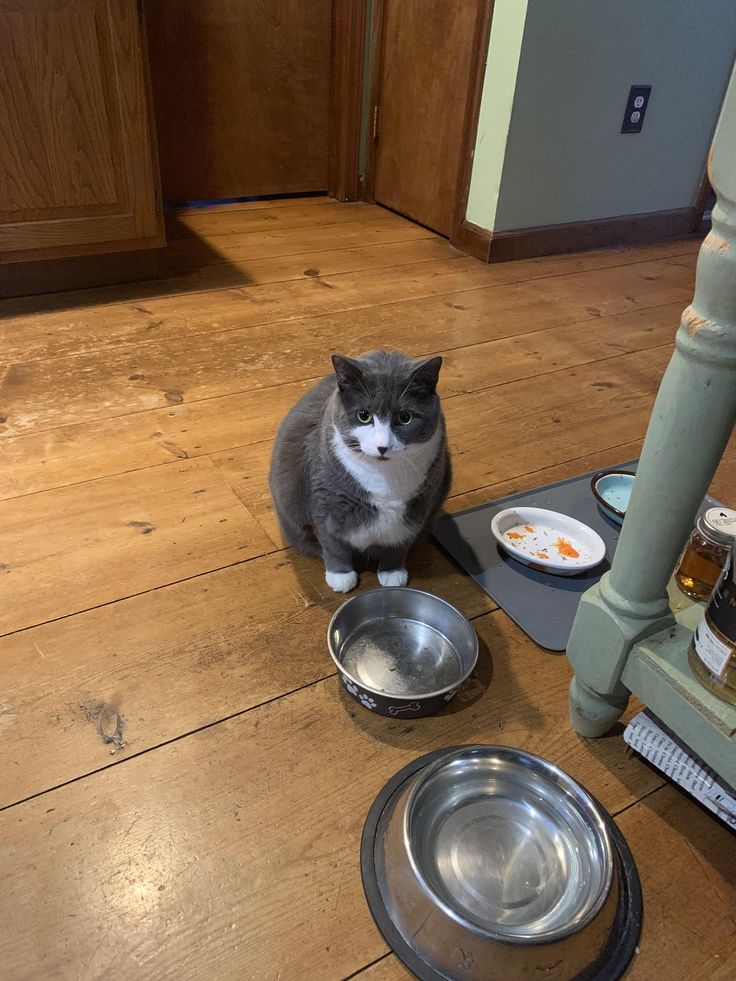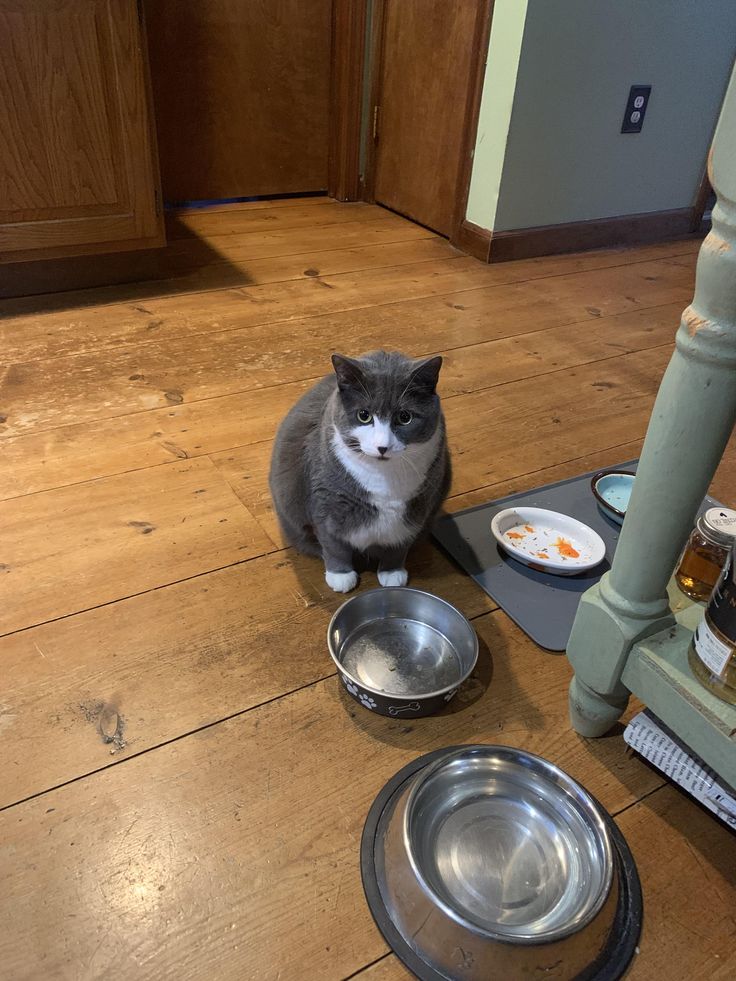Worried about your cat not eating? Learn the top reasons why cats stop eating and discover expert tips to help them regain their appetite. Vet-approved guide for concerned pet parents.

Introduction
Cats are creatures of habit, and when they stop eating, it’s a clear sign that something may be wrong. Whether your feline friend is skipping meals or refusing treats they usually love, it can be worrying. A cat not eating (also called anorexia in cats) is a symptom, not a diagnosis.
In this comprehensive guide from barkmeowhub.com, we’ll explore the reasons your cat may stop eating, what signs to look for, and step-by-step solutions to help your furry friend get back to a healthy diet.
Table of Contents
- How Long Can a Cat Go Without Eating?
- Common Causes Why Cats Stop Eating
- Health-Related Issues
- Behavioral and Environmental Reasons
- When to See a Veterinarian
- How to Encourage Your Cat to Eat
- Home Remedies vs. Vet Treatment
- Preventing Appetite Loss in Cats
- Frequently Asked Questions (FAQ)
- Conclusion
How Long Can a Cat Go Without Eating?
Cats can survive up to a week without eating, but only if they’re drinking water. Without both food and water, serious health complications may arise within 3 days. In some cases, cats can develop hepatic lipidosis (fatty liver disease), a life-threatening condition if not treated.
Common Causes Why Cats Stop Eating
| Cause Category | Examples | Severity |
|---|---|---|
| Medical | Dental disease, infections, kidney issues | High |
| Behavioral | Stress, change in routine | Moderate |
| Environmental | New home, loud noise, new pets | Moderate |
| Diet-related | Spoiled food, dislike of flavor | Low to Moderate |
Health-Related Issues
Many health conditions can cause appetite loss in cats. If your cat is not eating for more than 24 hours, you should take action.
1. Dental Problems
Cats with gingivitis, broken teeth, or oral ulcers may stop eating due to pain.
- Symptoms: Drooling, pawing at the mouth, bad breath.
- Solution: Vet dental checkup and possible cleaning or extraction.
2. Kidney Disease
Chronic kidney disease affects many older cats and causes nausea and vomiting, reducing appetite.
- Symptoms: Weight loss, increased thirst, lethargy.
- Solution: Blood tests, hydration therapy, prescription diets.
3. Digestive Disorders
Vomiting or diarrhea can disrupt appetite.
- Causes include: Intestinal parasites, IBD (Inflammatory Bowel Disease), or constipation.
4. Infections
Viral or bacterial infections like upper respiratory infections can make cats lose interest in food.
- Solution: Antibiotics, fluids, and supportive care.
5. Cancer
Tumors or gastrointestinal cancers can cause food refusal.
If your cat has lost significant weight, always seek veterinary care immediately.
Behavioral and Environmental Reasons
1. Stress or Anxiety
Cats are sensitive to stress from:
- Moving to a new home
- New pets or people in the house
- Rearranged furniture or loud noises
2. Depression or Grief
Cats may stop eating after losing a companion or experiencing major change.
3. Picky Eaters
Some cats just don’t like certain flavors, textures, or cold food.
Tip: Warm up wet food slightly to enhance its aroma.
4. New Food Introduction
Abrupt food changes can cause your cat to reject meals.
- Always transition food gradually over 7–10 days.
When to See a Veterinarian
| Symptom | Urgency Level |
|---|---|
| Not eating for more than 24–48 hours | High |
| Vomiting or diarrhea | High if persistent |
| Lethargy or hiding | Moderate to High |
| Sudden weight loss | High |
| Drooling, pawing mouth | High |
If your cat is showing multiple symptoms, it’s better to act fast than wait.
How to Encourage Your Cat to Eat
Here are effective techniques to stimulate your cat’s appetite:
- Warm the food slightly to make it smell stronger.
- Switch to wet food or add tuna juice/bone broth (without salt).
- Hand-feed small amounts gently.
- Use feeding puzzles to stimulate interest.
- Offer specialty appetite stimulants prescribed by vets.
- Reduce stress: use Feliway diffusers or create a quiet eating area.
- Try smelly foods like sardines (in moderation).
Home Remedies vs. Vet Treatment
| Solution Type | Example Remedies | When to Use |
|---|---|---|
| Home Remedy | Warming food, tuna juice, calm space | Mild or short-term issues |
| Vet Treatment | Appetite stimulants, IV fluids, diagnosis | Ongoing or severe symptoms |
Never give human medications to cats without consulting your vet.
Preventing Appetite Loss in Cats
Prevention is better than cure. Here’s how to minimize the risk:
- Keep feeding schedule consistent.
- Use high-quality, palatable cat food.
- Schedule annual checkups.
- Keep the litter box clean and in a quiet place.
- Avoid loud noises or abrupt changes in routine.
- Use slow transition when changing food brands or types.
Frequently Asked Questions (FAQ)
1. What if my cat is not eating but drinking water?
Still a concern. If they avoid food for over 24–48 hours, visit the vet.
2. Can cats skip meals?
Yes, occasionally. But multiple skipped meals signal a problem.
3. How can I tell if it’s dental pain?
Look for drooling, pawing at the mouth, bad breath, or visible tartar.
4. Do cats get bored of the same food?
Yes. Some cats prefer variety, especially with flavors and textures.
5. Can a picky cat starve?
Yes. Cats can develop fatty liver disease if they go without food too long.
Conclusion
Cats may stop eating for many reasons—from medical issues to environmental stress. Identifying the cause early can prevent serious health problems.
Don’t ignore changes in your cat’s eating habits. When in doubt, consult your vet promptly.
For more pet wellness tips, explore these helpful articles on barkmeowhub.com:
